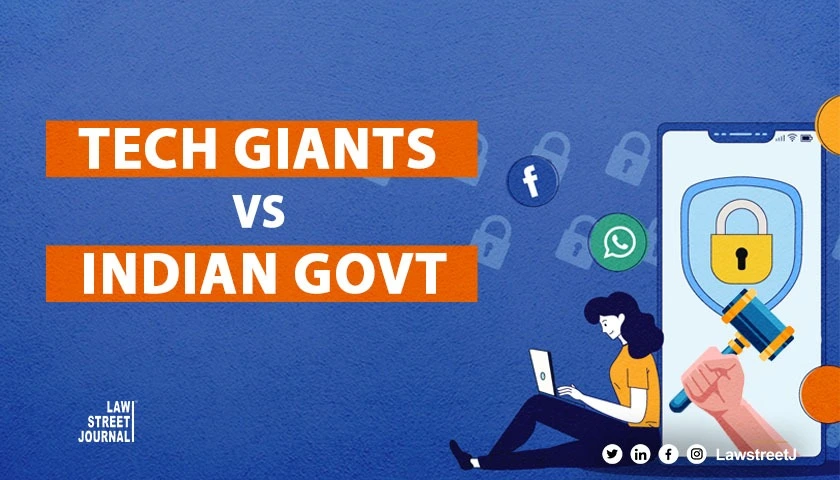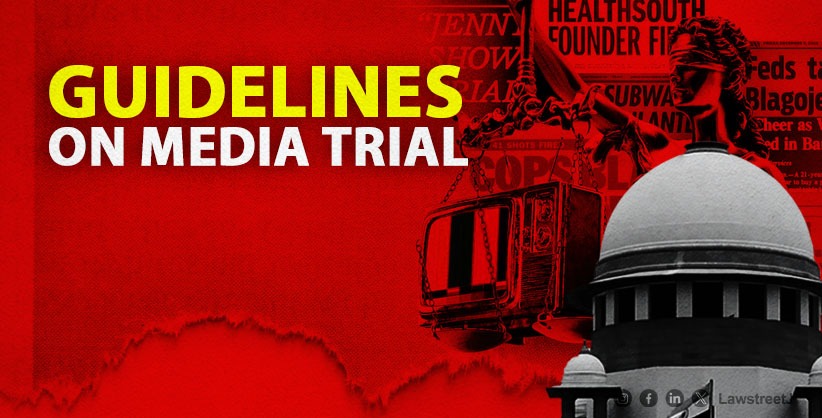NEW DELHI: In recent months, the Indian government has implemented regulations aimed at governing the operations of social media platforms, particularly focusing on messaging services like WhatsApp. While these regulations aim to address various concerns such as privacy, security, & accountability, they also raise significant issues regarding fundamental rights, business operations considering global standards. Lets delve into the multifaceted implications of these regulations, highlighting their potential impacts on privacy, freedom of expression, innovation, and of course, the economy.
Join our Whats App Channel to get the latest legal updates
Arguments in favour
At the heart of the conundrum surrounding social media regulations in India is the right to privacy. The requirement to trace the origin of messages, while ostensibly aimed at enhancing security and accountability, raises legitimate concerns regarding privacy infringement. India, like many other nations, enshrines the right to privacy in its constitution and is party to various international conventions that uphold this fundamental right. Any regulation that compromises this right must be scrutinized to ensure an equilibrium between security imperatives and individual liberty.
Furthermore, stringent regulations on social media platforms risk encroaching upon the freedom of expression, another cornerstone of democracy. Platforms like WhatsApp, Instagram & Facebook serve as vital avenues for individuals to express their opinions and engage in discourse. By imposing burdensome regulations, there's a real risk of stifling free speech and fostering a climate of self-censorship. Such constraints not only undermine democratic principles but also inhibit the free flow of ideas necessary for societal progress.
Moreover, the regulatory landscape in India poses challenges for innovation and business operations, particularly for tech giants like Facebook and WhatsApp. Compliance with these regulations demands significant resources, both financial and human, which could hamper companies' ability to innovate and compete effectively in the Indian market. The stringent requirements may deter these companies from introducing new features and services, limiting choices for users and stifling innovation in the digital sphere.
Facebook and WhatsApp argue that they already have robust mechanisms in place to protect user data and ensure privacy. However, additional regulatory requirements could disrupt these mechanisms and undermine user trust. The mandate to trace message origins, for instance, raises concerns about the integrity of end-to-end encryption, a cornerstone of communication privacy. Any compromise to encryption protocols could have far-reaching implications for user security and data protection.
Furthermore, the regulations in India seem to deviate from global standards for data privacy and social media regulation. This misalignment creates inconsistencies and challenges for multinational companies operating in India, potentially hindering their ability to comply with diverse regulatory frameworks across different jurisdictions. Such discrepancies not only increase compliance costs but also breed legal uncertainties, impeding the growth of the digital economy.
The imposition of legal liability on social media platforms for user-generated content sets a worrying precedent that could lead to censorship and self-censorship. Holding intermediaries accountable for the actions of users may incentivize platforms to adopt overly cautious moderation policies, thereby restricting the dissemination of diverse viewpoints and impeding the free exchange of information.
Moreover, compliance with the new regulations imposes significant financial burdens, particularly for smaller companies and startups. The high compliance costs could create barriers to entry, stifling competition, and innovation in the digital landscape. Additionally, these restrictive regulations may deter foreign investment, adversely impacting the Indian economy's growth potential and competitiveness on the global stage.
Arguments against -
The Rationale Behind Social Media Traceability Regulations in India
In the digital age, combating misinformation and safeguarding national security are paramount concerns for governments worldwide. In India, the traceability requirement imposed on social media platforms like Facebook and WhatsApp represents a proactive measure aimed at addressing these pressing challenges.
The proliferation of misinformation and disinformation on social media has been linked to incidents of violence and communal tensions in India. Recognizing this, the traceability requirement seeks to curb the spread of harmful content by enabling authorities to trace the origin of messages. By enhancing accountability and transparency, platforms can be held responsible for the dissemination of such content, thus mitigating its adverse societal impacts.
Beyond combating misinformation, the traceability requirement serves broader national security interests. Social media platforms have been exploited to incite violence, coordinate illegal activities, and spread propaganda, posing significant threats to public safety and stability. By facilitating the identification of perpetrators and their networks, traceability measures empower law enforcement agencies to effectively address these security risks.
Moreover, in the context of democratic processes such as elections, ensuring the integrity of online discourse is imperative. Traceability measures play a crucial role in preventing the manipulation of public opinion through coordinated disinformation campaigns, thereby safeguarding the democratic fabric of the nation.
In addition to enhancing security, traceability measures also prioritize the protection of vulnerable groups, including children, women, and minorities. These groups are often disproportionately affected by online harassment, hate speech, and misinformation. By enabling the identification and mitigation of such abuses, traceability measures contribute to creating a safer online environment for all users.
Furthermore, the requirement for companies to comply with sovereign laws reflects India's right to enact regulations that protect its citizens' interests and maintain law and order within its borders. Additionally, data localization requirements enhance data sovereignty by ensuring that sensitive information about Indian citizens remains subject to Indian laws and regulations.
Traceability regulations not only address pressing security and accountability concerns but also uphold fundamental democratic principles and protect vulnerable groups. By fostering transparency and empowering regulatory oversight, these measures contribute to a safer, more secure digital ecosystem in India. While regulations governing social media platforms in India aim to address legitimate concerns regarding privacy, security, and accountability, they also pose significant challenges to fundamental rights, business operations, and innovation. Achieving a balance between regulatory imperatives and the principles of democracy and economic growth is paramount. Policymakers must engage in dialogue with stakeholders to develop regulations that safeguard individual liberties, foster innovation, and promote a vibrant digital economy.
By- Siddharth Chandrashekhar,
Advocate & Counsel, Bombay High Court
[Disclaimer: The views expressed are solely of the author and they do not purport to reflect the opinion or views of LawStreet Journal]



![Women cant be denied job for not being married: Rajasthan High Court [Read Judgment]](/secure/uploads/2023/09/lj_8336_fbfe7a8f-f672-4a69-86ba-ba50c8f28544.jpg)
![Supreme Court Declares Retroactive Prosecution of Central Govt Officers in Corruption Cases [Read Judgment]](/secure/uploads/2023/09/lj_7861_761f7288-0461-48fc-8fc5-0a54fdeb9c73.jpg)







